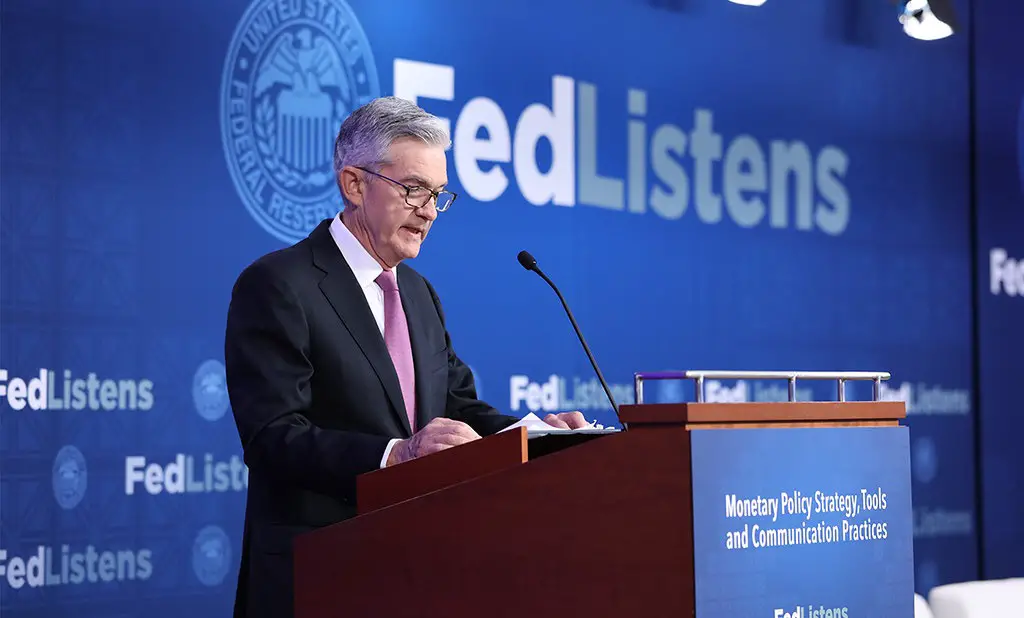The Federal Reserve’s recent decision to raise interest rates by 0.75% has significant implications for the Main Street economy. As a key driver of economic policy, the Federal Reserve’s rate hike affects various aspects of borrowing, spending, investment, and overall economic stability
Introduction
The Federal Reserve, commonly known as the Fed, plays a crucial role in managing the country’s monetary policy. Its primary objective is to maintain price stability and foster maximum employment. One of the tools the Fed uses to achieve these goals is controlling interest rates. By adjusting the federal funds rate, which influences borrowing costs, the Fed can stimulate or cool down economic activity.
Explaining the Federal Reserve’s Role
Before delving into the implications of the rate hike, it’s essential to understand the Federal Reserve’s role in the economy. The Federal Reserve is the central bank of the United States and is responsible for regulating the nation’s monetary policy. Its primary objectives are to maintain price stability and promote sustainable economic growth.
One of the key tools at the Fed’s disposal is the ability to influence interest rates. The federal funds rate, which is the interest rate at which banks lend to each other overnight, serves as a benchmark for various borrowing costs throughout the economy. By adjusting this rate, the Fed aims to manage inflation, employment levels, and overall economic activity.
Impact on Borrowing Costs
The recent decision to raise interest rates by 0.75% will have significant implications for borrowing costs across the board. Businesses and individuals alike will feel the effects of this rate hike.
For businesses, higher interest rates mean increased borrowing costs. Commercial loans, lines of credit, and other forms of business financing will become more expensive. This could potentially hinder investment in new projects, expansion plans, and hiring decisions. Small businesses, in particular, may face challenges in accessing affordable credit, which can impact their growth prospects.
Individuals will also experience the impact of higher interest rates. Mortgage rates are likely to rise, affecting homebuyers and homeowners with adjustable-rate mortgages. Auto loans and credit card interest rates may also see an increase, leading to higher monthly payments for consumers. This, in turn, may reduce disposable income and impact consumer spending habits.
Effect on Consumer Spending

When interest rates rise, it has the potential to affect consumer spending patterns. As borrowing costs increase, individuals may have less discretionary income to allocate towards non-essential purchases. This could result in a slowdown in consumer spending, which plays a vital role in driving economic growth.
When consumers cut back on spending, businesses may experience a decrease in sales and revenue. This can have a ripple effect throughout the economy, impacting employment levels and overall economic activity. It’s important for individuals to be mindful of their budget and prioritize their spending to adapt to the changing economic conditions.
Influence on Business Investment

Higher interest rates can also influence business investment decisions. When borrowing becomes more expensive, businesses may think twice before taking on new debt for capital expenditures or expansion plans. This cautious approach to investment can have implications for job creation and economic productivity.
Moreover, rising interest rates can also affect the valuation of stocks and bonds. As borrowing costs increase, the discounted cash flow models used to value companies may be adjusted, potentially leading to a decline in stock prices. This can impact investor sentiment, market volatility, and the overall performance of the stock market.
Implications for the Stock Market

The relationship between interest rates and the stock market is complex but interconnected. While rising interest rates can lead to increased borrowing costs for businesses, they can also indicate a strengthening economy. This can be seen as a positive signal for investors, potentially leading to increased demand for stocks.
However, if interest rates rise too rapidly or are perceived as a threat to economic growth, it can create uncertainty and volatility in the stock market. Investors may become more cautious, leading to a potential sell-off and downward pressure on stock prices.
Understanding the relationship between interest rates and the stock market is crucial for investors to make informed decisions. It’s important to keep a close eye on market trends, economic indicators, and the Federal Reserve’s monetary policy decisions.
Impact on Small Businesses

Small businesses, often referred to as the backbone of the economy, may face specific challenges as a result of the rate hike. These businesses rely heavily on access to affordable credit to fund their operations, invest in new equipment, and hire employees. When interest rates rise, it becomes more difficult for small businesses to secure loans at favourable rates, hindering their growth potential.
Moreover, higher borrowing costs can impact small businesses’ cash flow management. Increased interest payments on existing loans can squeeze their profit margins, making it harder to reinvest in the business or weather financial uncertainties. It’s important for small business owners to closely monitor their finances, explore alternative financing options, and seek professional advice to navigate the changing interest rate environment.
Considerations for Homeowners

Homeowners, especially those with adjustable-rate mortgages (ARMs), should pay close attention to the implications of the rate hike. ARMs are loans with interest rates that fluctuate over time based on market conditions. As interest rates rise, homeowners with ARMs may experience an increase in their monthly mortgage payments when the interest rate resets.
It is crucial for homeowners to review their mortgage agreements and understand the terms of their loans. Anticipating potential increases in monthly payments can help homeowners plan their budgets accordingly and avoid financial strain. Refinancing options should also be explored to secure more favourable rates or switch to fixed-rate mortgages for stability.
Financial planning and staying informed about market trends and mortgage options are essential for homeowners to manage the impact of rising interest rates effectively.
Effect on Savings and Investments
While rising interest rates can present challenges for borrowers, they can bring positive changes for savers and investors. As interest rates increase, the returns on savings accounts, certificates of deposit (CDs), and other fixed-income investments may also rise. Savers looking for low-risk options to grow their money may find more attractive interest rates in these financial products.
Investors need to evaluate their investment portfolios in light of changing interest rates. Diversification remains crucial to mitigate risks and take advantage of potential opportunities. While higher interest rates can impact bond prices, certain sectors, such as financial services, may benefit from a rising rate environment.
Individuals should assess their risk tolerance, investment goals, and consult with financial advisors to ensure their investment strategies align with the changing economic landscape.
International Implications
The Federal Reserve’s decision to raise interest rates can have implications beyond domestic borders. In an interconnected global economy, changes in U.S. interest rates can influence foreign exchange rates, international trade, and the overall stability of global financial markets.
A rate hike by the Fed may attract foreign investors seeking higher returns on their investments. This can strengthen the U.S. dollar and potentially impact exchange rates between currencies. Export-oriented industries may face challenges as a stronger dollar can make their products relatively more expensive, affecting competitiveness in the global market.
Global investors and policymakers closely monitor the Fed’s actions as they can create volatility and have ripple effects on economies worldwide. International collaborations and effective communication among central banks play a vital role in managing the spill over effects of interest rate changes.
Evaluating the Fed’s Decision
The Federal Reserve’s decision to raise interest rates by 0.75% reflects its assessment of the current economic conditions and its commitment to maintaining price stability and sustainable growth. The decision is based on careful analysis of various economic indicators, including employment data, inflation trends, and GDP growth.
It’s important to acknowledge that the Fed’s decisions are not without risks. While raising interest rates can help control inflation and prevent an overheating economy, it may also pose challenges for businesses, consumers, and the overall economic performance. The Fed needs to strike a delicate balance between managing inflationary pressures and supporting economic growth.
Anticipating Future Rate Changes
The rate hike by the Federal Reserve indicates a shift in monetary policy and raises questions about future rate changes. While the recent increase is significant, it’s important to consider it within the broader context of the Fed’s overall approach to managing the economy.
Monitoring economic indicators, such as employment levels, wage growth, and inflation, can provide insights into the potential trajectory of future interest rate changes. It’s crucial for businesses, consumers, and investors to stay informed about these indicators and the Fed’s announcements to make informed decisions and adapt their strategies accordingly.
Conclusion
The Federal Reserve’s decision to raise interest rates by 0.75% has far-reaching implications for the Main Street economy. The rate hike affects borrowing costs, consumer spending, business investment decisions, the stock market, small businesses, homeowners, savings, and international trade.
While the rate hike aims to manage inflation and maintain economic stability, it presents challenges and opportunities for various stakeholders. Businesses and individuals must adapt to higher borrowing costs, adjust spending habits, and explore alternative financing options. Homeowners should plan for potential mortgage payment increases, and savers/investors should review their portfolios in light of changing interest rates.
Understanding the Fed’s decision-making process and staying informed about economic indicators will help navigate the evolving economic landscape. As the Main Street economy adjusts to these changes, monitoring the implications and adapting strategies accordingly will be key to mitigating risks and capitalizing on opportunities.
FAQs (Frequently Asked Questions)
1. How often does the Federal Reserve raise interest rates? The Federal Reserve’s decisions on interest rates depend on the prevailing economic conditions. They meet regularly to assess the state of the economy and make adjustments as necessary. Rate changes can occur several times within a year or remain unchanged for an extended period.
2. Can higher interest rates benefit savers? Yes, higher interest rates can benefit savers as they may see increased returns on their savings accounts, CDs, and other fixed-income investments. However, the exact impact on savings depends on the specific financial products and market conditions.
3. Will the rate hike affect my adjustable-rate mortgage? Yes, a rate hike can impact adjustable-rate mortgages (ARMs). Homeowners with ARMs may experience an increase in their monthly mortgage payments when the interest rate resets. It’s important to review the terms of your mortgage agreement and plan accordingly.
4. How do rising interest rates impact the stock market? Rising interest rates can influence the stock market in various ways. While it may signal a stronger economy, it can also create uncertainty and volatility. The relationship between interest rates and the stock market is complex, and many factors influence stock prices.
5. How can small businesses cope with higher borrowing costs? Small businesses facing higher borrowing costs can explore alternative financing options, negotiate with lenders, and focus on improving cash flow management. Seeking professional advice and careful financial planning are crucial in navigating the challenges posed by higher interest rates.



